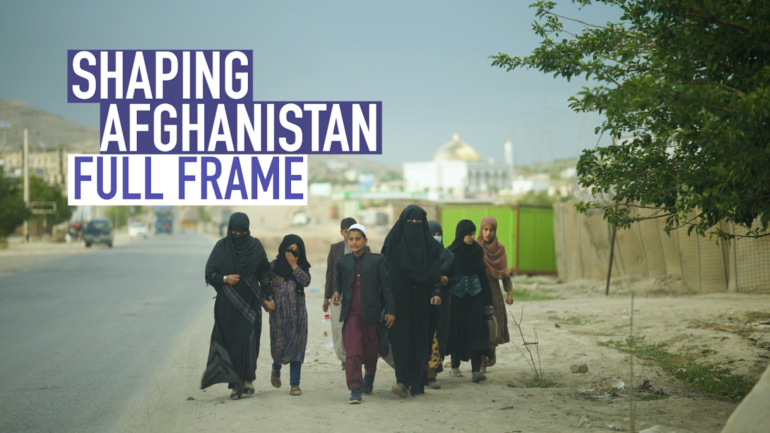After decades of war, Afghanistan faces a struggling economy and unstable security. How are Afghans navigating the aftermath of two decades of U.S. occupation and now rule under a new government? And what are the signs of resilience and hope?
Art in War Zones
Omaid Sharifi is an Afghan artist and curator. In 2014, he co-created Art Lords, a nonprofit organization that uses art as a means of social transformation. Artists and ordinary citizens have painted thousands of murals on concrete blast walls in Afghanistan, with messages calling for hope, unity and inclusion.
“Art makes you hopeful. It makes you see a better future for yourself, for your kids,” Sharifi said in an interview with Full Frame‘s Mike Walter. “If you’re in in a violent environment like Afghanistan … I think it’s art that brings a bit of kindness, a bit of empathy, it’s art that brings a bit of joy and happiness.”
The Bonds of War
At the start of the Afghanistan war, Jeff Stern arrived in Kabul with the hopes of making it as a journalist. He often reported from the heart of the violence, getting scoops on stories other reporters missed. It was thanks in large part to his driver, translator and friend, Aimal.
Stern’s latest book, The Mercenary, tells the story of their strong bond, one that’s survived the chaos, misunderstandings and life-threatening dangers of war.
“I’m trying not to say here’s an anti war book, but rather if we’re going to do this, if there are justified wars, if there are justified interventions, then surely at least we can be a little bit more humble, a little bit more aware of what we don’t know in a way that I was not,” Stern said. “Here are some small mistakes and, in some cases in the book, some big mistakes that can happen when you go barreling into a place thinking, you know things without really taking the time to actually learn to actually listen.”
Fighting for Girls’ Education
The return of Taliban rule in Afghanistan has created a complicated status for women and girls. Since reclaiming power, the Taliban have barred girls from attending high school.
Some Afghans, such as doctor Roshanak Wardak, are challenging Taliban authority by supporting community-based schools.
“This is not a government building. A person has donated his house for the school and very much [it’s] not suitable place. We hope the international community, they notice our need and they help us,” Wardak said.
 CGTN America
CGTN America
